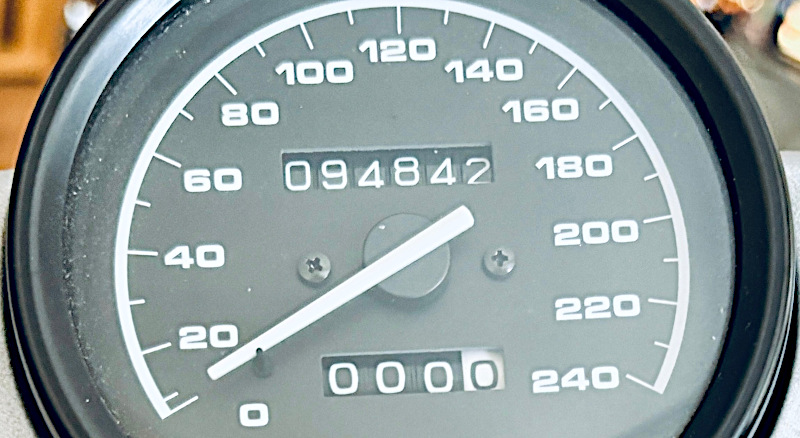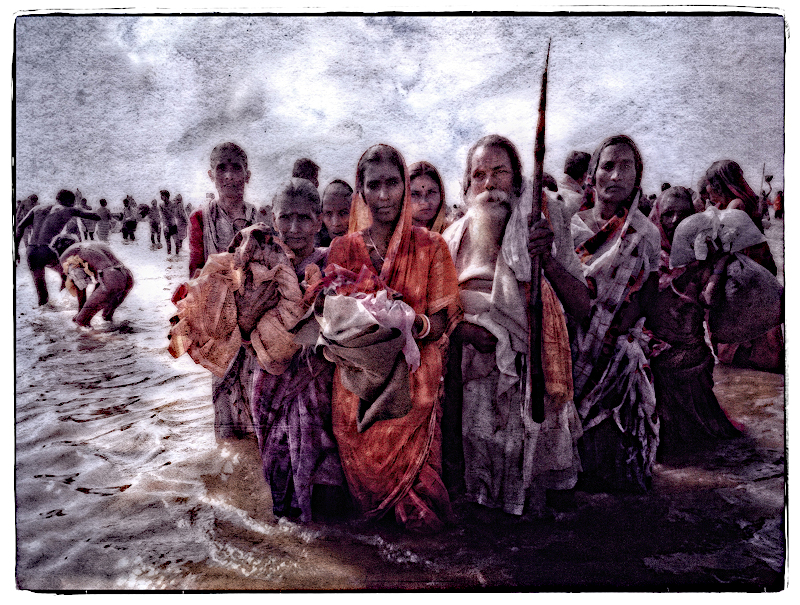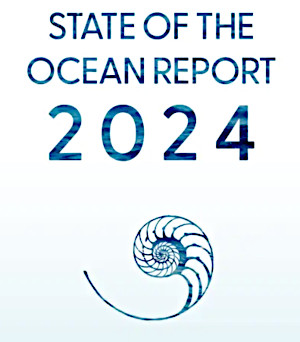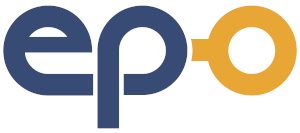Rechtsgutachten des Internationalen Gerichtshofes zu palästinensischen Gebieten => https://news.ippnw.de/index.php?id=2527
240724 | Climate Change and other stuff

Harris Presidency Will Be Bad News for Oil {we hope so…} (oilprize.com)
Mercury Bank sets August deadline for account closure, lists Nigeria, Zimbabwe, Mali among prohibited countries (Abdullah AJIBADE, Freelance Journalist, Osun, Nigeria)
Africa: Debt jeopardises the future of millions of Africans
On Monday (15th of July), Kenyan President William Ruto accused the Ford Foundation – a US-based philanthropy that promotes social justice and democratic values – of sponsoring violence and anarchy in Kenya (which Ford denies). It was an unusual move. It seems that Ruto (still) believes that meddling foreigners – and not citizens’ anger over his plan to raise taxes to address a fiscal crunch – sparked the protests that led to the storming of parliament and dozens of deaths, reports ONE. => https://www.epo.de/index.php?option=com_content&view=article&id=17181:africa-debt-jeopardises-the-futures-of-millions-of-africans&catid=49&Itemid=97
epoNewsTicker
240714
‘We are the Church’: Kenyan tax protesters take on Christian leaders (BBC, London, UK)
Joint Pilot Initiative Aims to Strengthen Resilience to Climate Change in Six Sahelian States (reliefweb/IOM United Nations)
Rwanda‘s 99% man who wants to extend his three decades in power (BBC, London, UK)
USA: Trump survives assassination attempt in Pennsylvania (MercoPress, Montevideo, Uruguay)
240713
Nigeria‘s Food Importation Policy Could Destroy Country’s Agriculture, Warns Akinwumi Adesina (allafrica.com/African Development Bank Group)
The entire world’s population is expected to reach 10.3 billion by 2080 (MercoPress, Montevideo, Uruguay)
Climate Change News Ticker | Klimakrisentagebuch

Foto: In the Holy Waters of River Ganga by Thomas Dix. Copyright (c) 2024 by epo.de & Thomas Dix
12.06.2024 | Brasilianisches Sumpfgebiet: Starke Brände wüten im Pantanal (tagesschau)
12.06.2024 | Südöstliches Mittelmeer: Südeuropa von erster Hitzewelle des Jahres betroffen (tagesschau)
07.06.2024 | Folgen der Klimakrise: Schäden werden bald nicht mehr versicherbar sein (SPIEGEL)
05.06.2024 | Steigender Meeresspiegel: Panama evakuiert Inselbewohner (RND)
05.06.2024 | MCC: Die menschengemachte Erderhitzung schreitet so schnell voran wie noch nie (epo.de)
05.06.2024 | Mehr als 40 Grad in Texas erwartet – Teilen der USA droht extreme Hitze (SPIEGEL)
05.06.2024 | Klimawandel: Menschengemachte Erderwärmung nimmt schneller zu denn je (ZEIT)
01.06.2024 | Hochwassergefahr nach Dauerregen: Süddeutschland rüstet sich für Überflutungen (SPON)
29.05.2024 | Klimawandel: Ein unverantwortliches soziologisches Experiment (DLF Nova)
In nur wenigen Jahrzehnten wird die Arktis im Sommer eisfrei sein. In den Alpen werden die Gletscher verschwinden. Die Welt, in der wir leben, wird dadurch komplett verändert. Ein Audio-Vortrag des Klimaforschers Dirk Notz.
29.05.2024 | Hitzewelle in Südostasien: 52,3 Grad – höchste je gemessene Temperatur in Indien (SPON)
29.05.2024 | Ostafrika: Zunehmende Wetterextreme lassen die Kräfte der Menschen schwinden (epo.de)
28.05.2024 | Indien und Bangladesch: 30 Millionen Menschen nach Tropensturm ohne Strom (tagesschau)
28.05.2024 | Cyclone Remal Tears Through India and Bangladesh, Killing at Least 23 (New York Times)
28.05.2024 | Extremhitze in Pakistan: Bei Temperaturen bis zu 53 Grad erleiden hunderte Menschen Hitzschlag (euronews)
28.05.2024 | The drought that forced a Himalayan village in Nepal to relocate (BBC)
27.05.2024 | Viele Tote nach Stürmen in den USA (tagesschau)
24.05.2024 | Extremhitze: Pakistan erwartet Temperaturen von mehr als 50 Grad (SPON)
24.05.2024 | Klimakrise in nördlichen Breiten: Sommer 2023 war der wärmste der letzten 2.000 Jahre (epo.de)
24.05.2024 | Last summer’s temperature rise could be worse than we thought (Guardian)
21.05.2024 | Hitzewelle in Mexiko: Brüllaffen fallen tot von Bäumen (SPON)
19.05.2024 | Lancet-Bericht über Auswirkungen extremer Temperaturen in Lateinamerika (amerika21)
18.05.2024 | Fifty dead in heavy rain, floods in central Afghanistan, official says (reuters)
17.05.2024 | Klimapolitik der Ampelregierung: Das Klimaschutzgesetz reicht nicht aus (DLF)
17.05.2024 | Economic damage from climate change six times worse than thought – report (Guardian) :: A 1C increase in global temperature leads to a 12% decline in world gross domestic product, researchers have found!
14.05.2024 | Death Toll In Indonesia’s Floods, Volcanic Mudflows Rises To 52 (OMMCOM News)
13.05.2024 | Mehr als 300 Tote bei Sturzfluten in Afghanistan (tagesschau)
13.05.2024 | Brazil’s Rio Grande do Sul may have more record level flooding (reuters)
13.05.2024 | Tausende Menschen fliehen vor Waldbränden in Kanada (tagesschau)
11.05.2024 | Hitzewelle sorgt für Temperaturrekorde in Mexiko (latinapress)
10.05.2024 | Südostasien ächzt unter Hitzewelle (tagesschau)
10.05.2024 | Rekord-Hitzewelle in Thailand führt zu mehr als 60 Toten
09.05.2024 | In Brasilien sind weite Teile des Bundesstaates Rio Grande do Sul nach starken Regenfällen, die weiter andauern, überflutet. Die Nachrichtenagentur latina-press berichtet unter Berufung auf das Bulletin des Zivilschutzes, dass die Unwetter mehr als 100 Tote, 131 Vermisste und 372 Verletzte gefordert haben. 207.800 Menschen sind obdachlos. Insgesamt sind 1,4 Millionen Menschen von der Katastrophe betroffen.
08.05.2024 | El Niño und Klimawandel verursachen Rekordkatastrophen in Lateinamerika
08.05.2024 | Der April 2024 war laut EU-Umweltdienst Copernicus der weltweit wärmste April seit Beginn der Wetteraufzeichnungen
07.05.2024 | Rettung für die Reichen in Afrika: »Die grausame Ironie des Klimawandels« (SPON)
(… Redakteur leider krank und außer Gefecht…)
26.04.2024 | Klimawandel könnte bis Mitte des Jahrhunderts zum Hauptgrund für den Verlust der biologischen Vielfalt werden (PIK)
19.04.2024 | Fast 19.000 Wetterstationen haben seit 1. Januar Rekordtemperaturen verzeichnet, berichtet die Washington Post.
“Nearly nineteen thousand (19,000) weather stations have notched record high temperatures since Jan. 1.” (Source: Earth’s Record Hot Streak Might be a Sign of a New Climate Era, The Washington Post, April 19, 2024)
20.02.2024 | Amazonas-Regenwald auf der Kippe | “Der Amazonas-Regenwald könnte sich einem Kipppunkt nähern, der zu einem großflächigen Zusammenbruch mit schwerwiegenden Auswirkungen auf das globale Klima führen könnte. (Solarify)
09.02.2024 | Earth | “January 2024 was the warmest January in the ERA5 data recordanuary 2024 was the warmest January in the ERA5 data record, going back to 1940. The global surface air temperature was 13.14°C, which is 0.70°C above the 1991-2020 average for January and 0.12°C above the previous warmest January, in 2020. Taking into account the average of the last twelve months, the global mean temperature was the highest on record at 0.64°C above the 1991-2020 average and 1.52°C above the 1850-1900 pre-industrial average.” (Copernicus Climate Change Service)
08.02.2024 | USA | St. Paul, Minn. | Globe breaks heat record for 8th straight month. Golfers get to play in Minnesota’s “Lost Winter of 2023-24.” (AP)
07.02.2024 | United Kingdom | Britain braces for Arctic blast of heavy snow and ice | Guardian
25.01.2024 | Im Süden und Osten Spaniens wurden an die 30 Grad Celsius gemessen. Laut der Wetterbehörde Aemet zeigte das Thermometer am Nachmittag in der Region Valencia 29,5 Grad. In der Region Murcia maßen die Behörden 28,5 Grad
21.01.2024 | In den USA sterben laut dpa Dutzende Menschen wegen eisiger Temperaturen
15.01.2024 | USA | Right Wing Climate groups urge Speaker Johnson to fight back on Biden’s ‘Green New Deal agenda’
15.01.2024 | Brasilien | Starkregen und Überschwemmungen in Rio de Janeiro – mehrere Tote: “In manchen Teilen von Rio de Janeiro fiel binnen 24 Stunden so viel Regen wie sonst im ganzen Januar: Mindestens neun Menschen kamen ums Leben. Der Bürgermeister forderte die Menschen auf, aus Sicherheitsgründen daheimzubleiben.”
14.01.2024 | USA | John Kerry to step down as US climate envoy
11.01.2024 | Mozambique | How to cyclone-proof your life: Mozambicans learn to build stronger houses as climate change brings bigger and deadlier storms.
UNESCO State of the Ocean Report 2024

The UNESCO State of the Ocean Report offers insights on ocean-related scientific activities and analyses describing the current and future state of the ocean.
The State of the Ocean Report has the ambition to inform policymakers about the state of the ocean and to stimulate research and policy actions towards ‘the ocean we need for the future we want’, contributing to the 2030 Agenda and in particular SDG 14, as well as other global processes such as the UNFCCC, the Convention on Biological Diversity and the Sendai Framework for Disaster Risk Reduction.
Structured around the seven UN Decade of Ocean Science for Sustainable Development Outcomes, the Report provides important information about the achievement of the UN Ocean Decade objectives and, in the longer term, about ocean well-being.
More than 100 authors from 28 countries contributed to the Report. The different sections provide insights on ocean-related scientific activities and analyses describing the current and future state of the ocean, addressing physical, chemical, ecological, socio-economic and governance aspects.
Europawahl: Die Parteien und der Klimaschutz…
Nach den Bestimmungen des Pariser Klima-Abkommens müssen alle Vertragsstaaten bis Ende 2025 neue und ehrgeizigere Klimaziele (Nationally Determined Contributions, NDCs) vorlegen. Die Europäische Union soll ihr Reduktionsziel für Treibhausgase bis 2040 ebenfalls neu festlegen. Oxfam hat die bei der Europawahl kandidierenden Parteien gefragt, inwiefern sie den derzeitigen Pfad der EU für ausreichend fair und ambitioniert halten. => Mehr auf epo.de …
5.000 Delegierte bei Klima-Beratungen in Bonn
Rund 5.000 Delegierte wollen vom 3. bis 13. Juni im World Conference Center Bonn den diesjährigen Klimagipfel (COP29) in Baku (Aserbaidschan) vorbereiten. Es handelt sich um die 60. Tagung der Subsidiary Bodies (SB), der ständigen Nebenorgane der Klima-Vertragsstaatenkonferenz der Vereinten Nationen (UNFCCC). Passend dazu beschäftigt sich die deutsche Politik derzeit mit den Folgen der Klimaveränderungen in Form desaströser Überschwemmungen in Süddeutschland. => Mehr bei epo.de…
